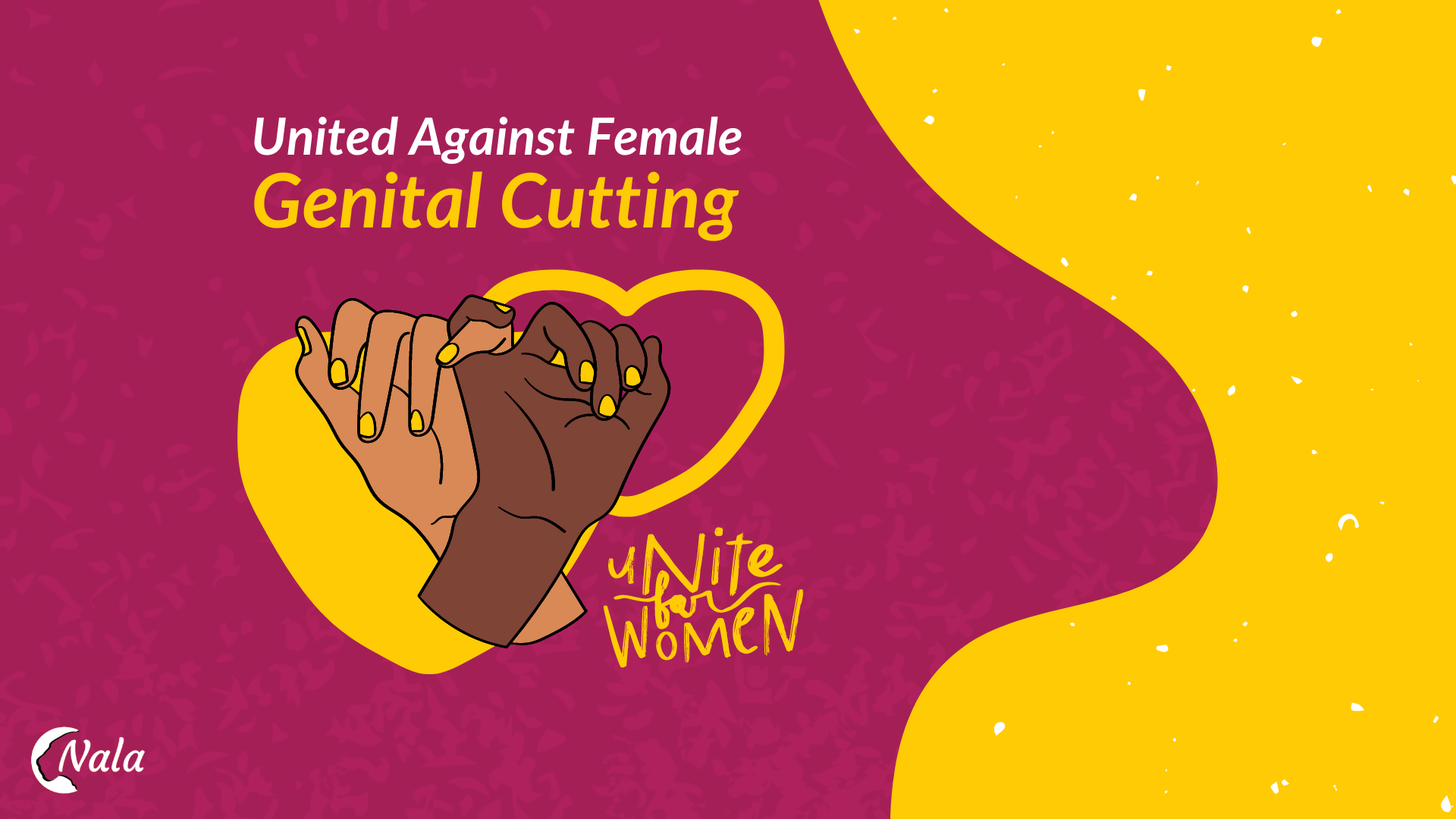African women continue to struggle to find the right spaces to speak and share the realities of our generation. We do not lack bravery or confidence, but advocacy spaces that would engage our stories with kindness and actual solutions. Our feminist ancestors have taught us that what brings us together is our Pan-African solidarity. As African women, we will not allow anyone to keep us quiet. We know and recognize that the future cannot be just, peaceful and equal if young women and girls remain subject to gender-based violence such as female genital mutilation/cutting (FGM/C), other forms of domestic violence and femicide. Enough is enough. African women want and expect to be freed from the societal misconceptions which fuel the prevalence of FGM/C.
It was groundbreaking to bring together 1,500 young people from across the continent during five Africa Young women Beijing + 25 virtual regional barazas (or convenings) hosted by the African Union Special Envoy on Youth, Aya Chebbi, in November 2020. The barazas opened up a space for sharing and speaking on the issues that challenge African women’s access and mobility spatially and socially. This was based on the premise that Africa’s women do not need anyone to speak on their behalf. They have voices and demands that must be heard and acted upon with the respect they deserve. The regional consultations culminated in the Africa Young Women Beijing + 25 Manifesto—a revolutionary feminist document that carries 10 bold demands. These are the hopes and aspirations that come to exist against sexist national laws, marginalization, and the lack of economic justice.
As expressed by Africa’s young women, FGM/C remains a tool used to oppress their bodies—as an act of gender-based violence which many women have been forced to remain silent about for decades. Unlike other spaces, the manifesto was not built upon the problematic framing which discusses women’s issues without giving them agency. Instead, it was created through their inputs, generous sharing, radical honesty and listening.
What about the other demands? FGM/C interlinkage with other forms of inequalities must be recognized. Each of the Manifesto’s 10 Demands provides an important roadmap to re-affirm that liberation pathways for young women are multi-layered and include demanding the provision of legal, physical and psychological support, shelters and specialist services to women subjected to all forms of violence, to demanding the removal of taxation on menstrual products, enforcement of progressive period policies in all workplaces, and the provision of free sanitary pads and sanitation in all schools.
African women and the 10 demands:
- Economic Justice
- The Criminalization of Gender-Based Violence
- The End of Gender-Based Discrimination
- Access to Justice and Protection
- Sexual and Reproductive Health and Rights
- Mental Health and Well-Being
- Inclusive, Equitable and Quality Education
- Digital Justice
- Silencing the Guns
- Intergenerational co-leadership
What binds the manifesto together is an equitable desire to center women’s voices within policy and decision making spaces in which they are absent— an absence that can be deemed violent. These are spaces in which African women are being spoken for, without inclusion. The Generation Equality Forum in Paris provides us, as the Nala Feminist Collective, with a unique opportunity to advocate for the implementation of these 10 demands. We are powered by African women’s words with a document that unites our voices, across urban and rural, online and offline spaces.
Our Nala Council is made of 17 feminists with a mission to foster, enable and mobilize young women from Africa and the diaspora, bridging the gap between policy and implementation, intergovernmental and grassroots organizations, as well as generational spaces.
Together—not without Africa’s young women.
Join our advocacy. We have launched our 10,000 Signature Campaign. We need your support. The fight cannot be solo. Lend your voice to African young women and sign the Manifesto.

